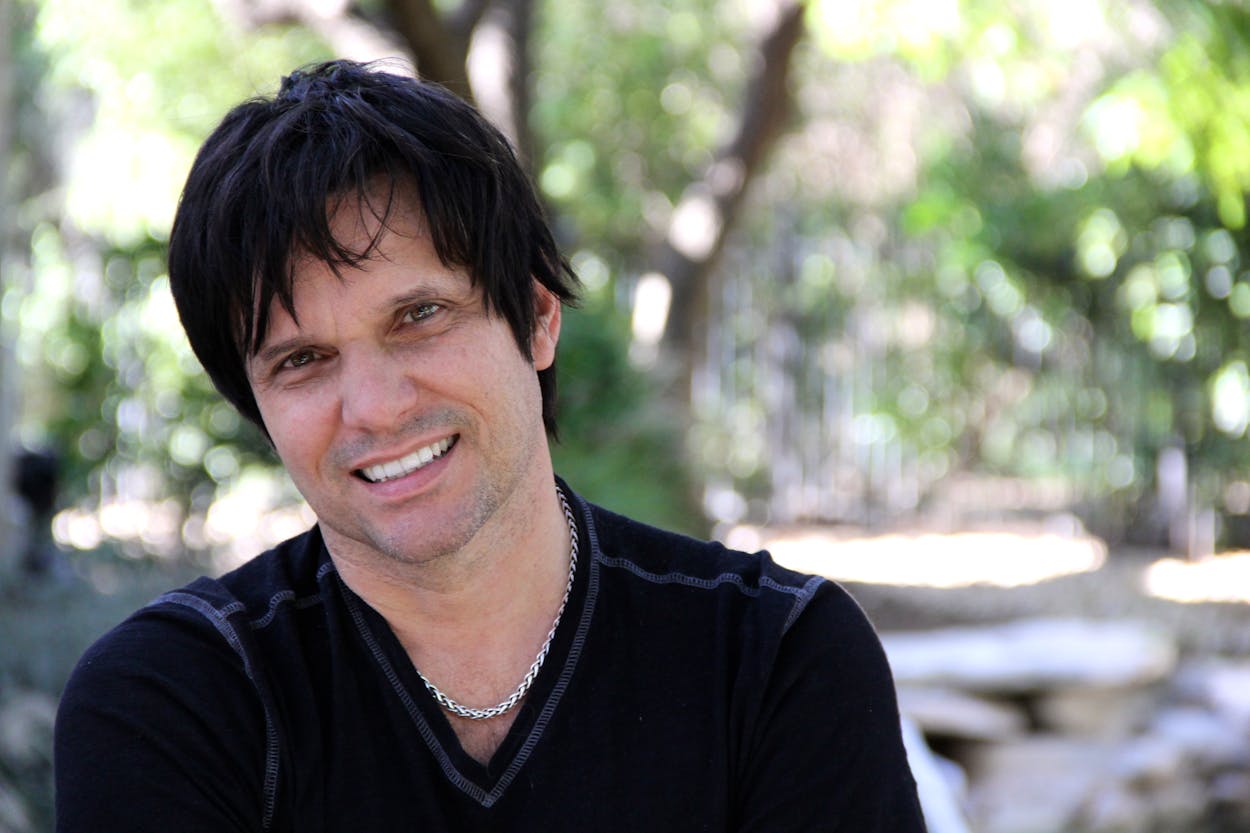Horrible things happen in Ted Dekker’s best-selling novels. A serial killer snaps the bones of his victims. A sadistic Nazi toys with his captives. A box opens to reveal a severed finger.
Dekker made his name writing dark, Christian-oriented thrillers — novels more like those of Stephen King than those of C. S. Lewis. His dozens of novels have sold 10 million copies worldwide and inspired rock-star-caliber devotion from fans who flaunt Dekker-themed tattoos and wait in line for hours to get a signature and a hug. Dekker is a hugger.
While his latest novel, “A.D. 30,” published by the Hachette Book Group, begins with a nightmarish murder, it is nevertheless a departure for Dekker — and a gamble. One character is Jesus himself, called Yeshua, and the book jacket promises readers that they will “experience the way of Jesus as you never have.” It may be a genre unto itself: part historical fiction, part spiritual self-help, a book of drawn daggers and homespun theology.
Dekker reflected on the novel, and on some recent personal turmoil, during a conversation in his writing cottage, called “the casita,” behind his home in a gated neighborhood near Barton Creek Country Club in Austin, Tex. Dressed in jeans and a black T-shirt, Dekker, 52, reclined on a red couch a few feet away from the iMac he uses to crank out his biblical blockbusters.
Q. You’ve balked at being called a “Christian author.” Yet you’re a Christian, and your core audience is made up of Christians. What’s wrong with that label?
A. What does Christian mean? In a lot of places Christian means a right-wing, homophobic bigot who wants to carry a gun. If I come to that person and say, “I’m a Christian,” what I’m saying to that person is, “I’m a bigot.” But this is not true. It would be disingenuous for me to say I’m a Christian to that person. If I go to Seattle and say, “I’m a Christian,” it means something different than if I go to Texas and say, “I’m a Christian.” So I didn’t want to be known universally as a Christian. That’s what I’ve said in the past. Now, I don’t care. Call me whatever you want. I follow Jesus. He and his way are the only way to escape the troubles of this life. That’s all I know.
Q. You’ve talked about coming to a crisis point a few years ago when you were at the pinnacle of your career. What happened?
A. The more successful that I became in the world’s eyes, the more miserable I became in spirit. I entered into a place of pretty significant suffering. When you are handed so much, everything that you thought would give you great happiness, and it fails you, what is there left? And you begin to panic. You start feeling very anxious and uneasy. It’s often that deep place of suffering that allows us to surrender what we think we know. For me, the boat that I was in was sinking. Success in the end becomes one of the biggest anchors. And it’s usually not until then it hits you that “this isn’t working out the way I thought it would.”
Q. How did you get out of that?
A. I see myself as a person who’s being reborn. It’s not like one day, boom, you’re out. No. Jesus taught that. It’s the process of being reborn, which can be a bloody business. I’ve got half my body out and half my body in every day. Transformation is a process. It’s a shifting of your entire perspective of the world. I’m out of it completely when I let go of the world and see myself as the son of my father.
Q. Is there any solace — forget the money and the fame — in creating something, putting it out into the world, and having people enjoy it or be comforted by it?
A. To the extent that I can draw some kind of satisfaction from a person’s praise. But “appreciating” becomes “a desire for,” then it becomes an addiction. We begin to depend on that to make us feel good about ourselves. It’s just another drug, the praise of others. You’re looking for meaning. Your meaning is derived from something outside of yourself.
Q. The publicity materials for this book say it helped you rediscover your faith. Had you lost it?
A. We never lose our faith. No one loses their faith. Everyone has faith. The question is, what is your faith in? Is it in the storms of this life? Or is it in the peace outside the storm? Is it in success as seen by the world, or is it in something else? In my journey while writing this novel, I discovered a new kind of faith in a power beyond the power of the storm.
Q. So the book helped?
A. Oh, absolutely. It’s not the book, it’s the journey. This book is just a thing that came out of my journey. I’ve been thinking about this book forever. It’s 10 years in the making. Going back to the teachings of Jesus and understanding his obsessions, his perceptions of the world, completely changed my perceptions of the world. He teaches on so many different things, but they all come back to the same principles. They were very transformative, and they will be to anybody who has ears to hear.






